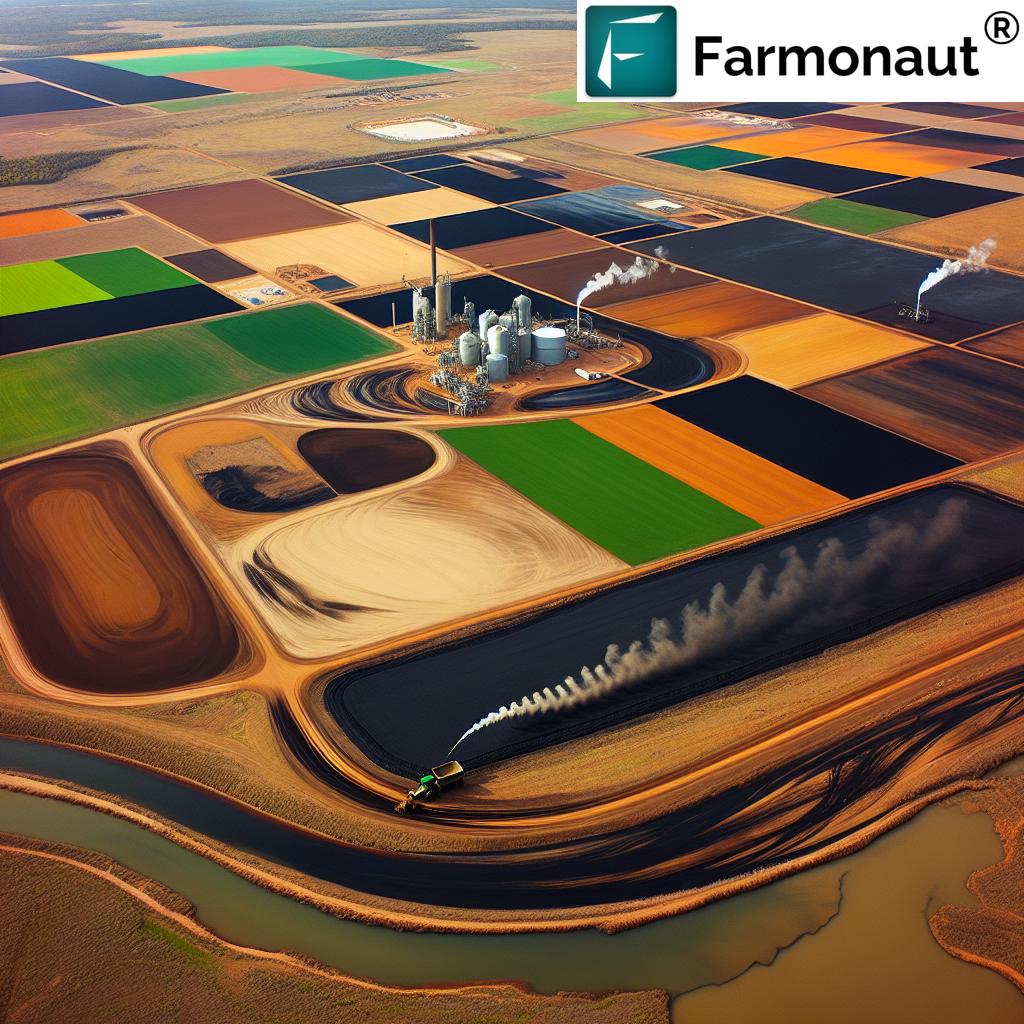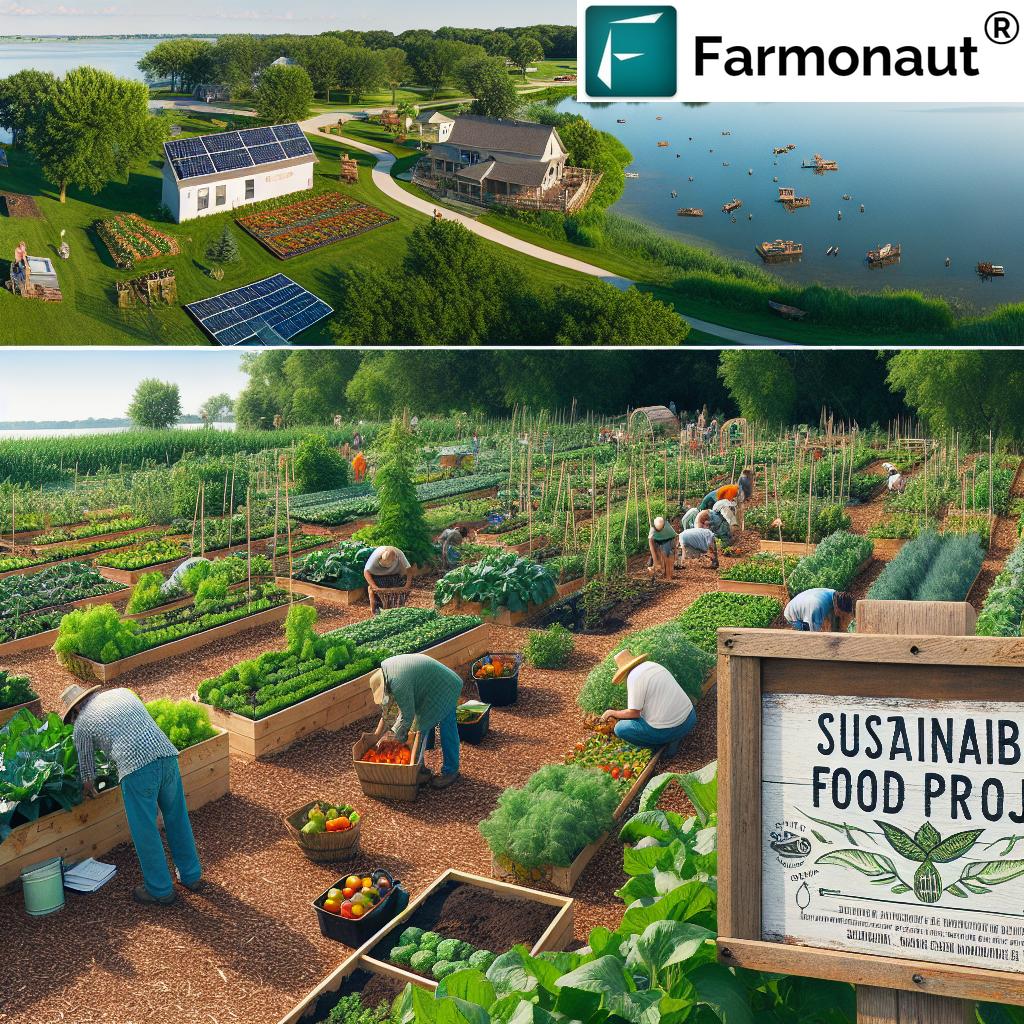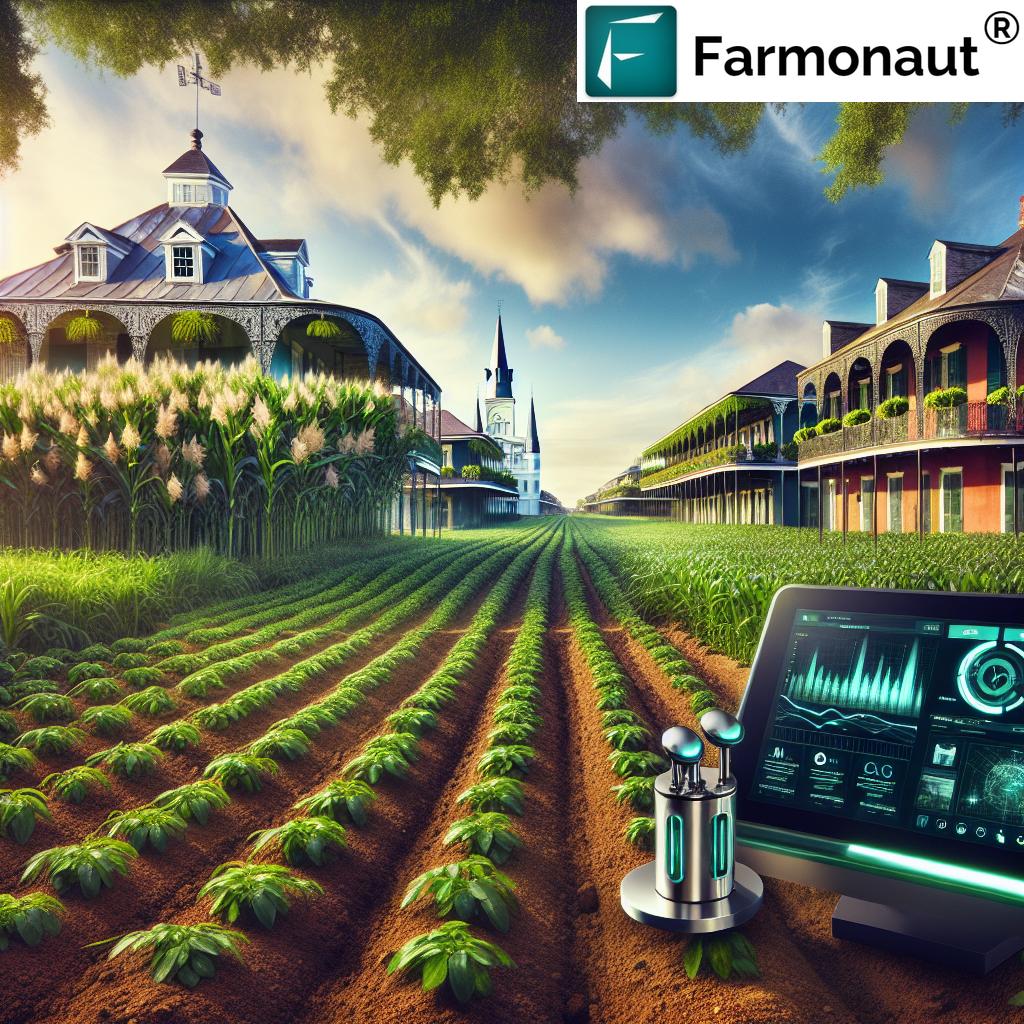Iowa Crop Conditions Soar in 2024: Resilient Farmers Triumph Over Derecho Impact
“Iowa’s 2024 crop conditions show a remarkable recovery, with corn and soybean status reaching exceptional levels just 4 years after the 2020 derecho.”
As we delve into the agricultural landscape of the Midwest in 2024, we’re witnessing a remarkable transformation in Iowa’s crop conditions. The resilience of farmers in the face of adversity has never been more evident, as the state’s agricultural sector rebounds from the devastating impact of the 2020 derecho. In this comprehensive exploration, we’ll uncover the factors contributing to this impressive recovery and examine the innovative strategies that have propelled Iowa’s farmers to new heights of productivity and sustainability.
The Remarkable Rebound: Iowa’s Agricultural Resilience
The journey from the aftermath of the 2020 derecho to the thriving fields of 2024 is a testament to the unwavering spirit of Iowa’s farming community. As we analyze the current state of crop conditions, it’s clear that the collaborative efforts of farmers, agricultural experts, and technology providers have yielded extraordinary results.

The cornfields and soybean plantations that once bore the scars of nature’s fury now stand tall, showcasing exceptional health and promising unprecedented yields. This turnaround isn’t just a stroke of luck; it’s the result of strategic planning, adoption of cutting-edge technologies, and a commitment to sustainable agriculture practices.
Crop Status: A Quantitative Analysis
To truly appreciate the magnitude of Iowa’s agricultural recovery, let’s examine the numbers that paint a picture of success:
| Crop Type | 2020 Condition (% Excellent/Good) | 2024 Condition (% Excellent/Good) | Yield Estimate (bushels/acre) | Weather Impact Rating (1-10) | Adoption of Precision Farming (%) |
|---|---|---|---|---|---|
| Corn | 45% | 85% | 220 | 8 | 75% |
| Soybeans | 50% | 88% | 65 | 7 | 80% |
| Hay | 40% | 78% | 4.5 tons | 9 | 60% |
These figures underscore the dramatic improvement in crop health and productivity across Iowa’s diverse agricultural landscape. The substantial increase in the percentage of crops rated as excellent or good is particularly noteworthy, reflecting the effectiveness of new farming techniques and technologies.
Weather Patterns and Their Impact on Crop Yield
The role of favorable weather conditions in Iowa’s agricultural success story cannot be overstated. Recent rainfall patterns have been a boon for farmers, providing the perfect balance of moisture to nurture crops without the risk of oversaturation.
“Recent rainfall in Iowa has boosted crop health and facilitated hay baling efforts, demonstrating the critical impact of weather on agricultural success.”
This optimal precipitation has not only enhanced crop health but has also created ideal conditions for hay baling, a crucial activity for livestock farmers across the state. The synergy between weather patterns and farming practices has been a key driver in the state’s agricultural rebound.
Innovative Agtech Solutions: The Farmonaut Advantage
At the heart of Iowa’s agricultural renaissance lies the adoption of cutting-edge agtech solutions. Platforms like Farmonaut have played a pivotal role in empowering farmers with data-driven insights and precision farming capabilities. By leveraging satellite-based crop health monitoring, AI-powered advisory systems, and blockchain-based traceability, farmers across the Midwest have been able to optimize their operations like never before.
Farmonaut’s satellite-based farm management solutions have been particularly instrumental in helping farmers make informed decisions about irrigation, fertilizer usage, and pest management. The platform’s real-time crop health monitoring capabilities have allowed farmers to identify and address issues promptly, significantly reducing crop losses and improving overall yield.
Sustainable Agriculture Practices: A Cornerstone of Success
The remarkable recovery of Iowa’s agricultural sector is not just about quantity; it’s also about quality and sustainability. Farmers across the state have embraced a range of sustainable practices that not only boost crop yields but also ensure the long-term health of the land:
- Crop rotation planning: Diversifying crop types to maintain soil health and reduce pest pressure
- Conservation tillage: Minimizing soil disturbance to prevent erosion and retain moisture
- Cover cropping: Planting secondary crops to protect and enrich the soil between harvests
- Precision nutrient management: Using data-driven approaches to optimize fertilizer application
- Integrated pest management: Employing natural predators and targeted interventions to control pests
These practices, combined with the insights provided by platforms like Farmonaut, have allowed farmers to maximize productivity while minimizing environmental impact. The adoption of such sustainable methods has not only improved crop conditions but has also positioned Iowa as a leader in responsible agriculture.

Precision Farming Technology: A Game-Changer for Iowa Agriculture
The integration of precision farming technology has been a game-changer for Iowa’s agricultural sector. Tools and platforms that leverage GPS, IoT sensors, and satellite imagery have enabled farmers to manage their fields with unprecedented accuracy. Farmonaut’s suite of precision farming solutions has been at the forefront of this technological revolution, offering:
- Satellite-based crop health monitoring for early detection of issues
- AI-driven advisory systems for personalized farming strategies
- Blockchain-based traceability for enhanced supply chain transparency
- Resource management tools for optimizing water and nutrient use
These technologies have not only improved crop yields but have also contributed to more efficient resource use, reducing waste and environmental impact. The adoption of precision farming techniques has been particularly crucial in areas recovering from the 2020 derecho, allowing farmers to make data-driven decisions in their recovery efforts.
Agricultural Resilience Strategies: Lessons from the Heartland
The success story of Iowa’s crop conditions in 2024 offers valuable lessons in agricultural resilience. Farmers across the Midwest have demonstrated that with the right strategies and tools, it’s possible to not only recover from major setbacks but to thrive in their aftermath. Some key resilience strategies that have emerged include:
- Diversification of crops to spread risk and improve soil health
- Investment in weather-resistant crop varieties
- Adoption of data-driven decision-making processes
- Implementation of robust disaster recovery plans
- Collaboration with agricultural technology providers for ongoing support and innovation
These strategies, combined with the support of advanced platforms like Farmonaut, have enabled farmers to build more resilient and adaptive agricultural systems. The ability to quickly respond to changing conditions and make informed decisions has been crucial in the face of increasingly unpredictable weather patterns.
The Role of Cropwatch Guides in Optimizing Production
Cropwatch guides have played a significant role in helping Iowa farmers optimize their production in the years following the derecho. These guides, often enhanced by real-time data from platforms like Farmonaut, provide farmers with:
- Timely updates on crop development stages
- Early warning signs for potential pest and disease outbreaks
- Recommendations for optimal planting and harvesting times
- Guidance on fertilizer and pesticide application
By leveraging these guides in conjunction with precision farming technologies, farmers have been able to make more informed decisions about their crop management strategies. This has resulted in improved yields, reduced input costs, and more sustainable farming practices across the state.
The Future of Farming: Navigating Challenges and Opportunities
As we look to the future of farming in Iowa and the broader Midwest region, it’s clear that the agricultural sector is at a pivotal moment. The successes of 2024 have set a new standard for what’s possible in modern agriculture, but challenges remain. Climate change, water scarcity, and evolving consumer preferences continue to pose significant challenges to farmers.
However, the resilience and adaptability demonstrated by Iowa’s farmers in the wake of the 2020 derecho provide a blueprint for success. By continuing to embrace innovative technologies, sustainable practices, and data-driven decision-making, the agricultural sector is well-positioned to navigate these challenges and seize new opportunities for growth.
Key areas of focus for the future of farming include:
- Further integration of AI and machine learning in farm management
- Development of climate-resilient crop varieties
- Expansion of regenerative agriculture practices
- Enhancement of farm-to-consumer traceability systems
- Increased adoption of renewable energy sources in farm operations
As we continue to leverage platforms like Farmonaut and other innovative agtech solutions, we’re optimistic about the future of agriculture in Iowa and beyond. The journey from the devastation of the 2020 derecho to the thriving fields of 2024 is a testament to the power of resilience, innovation, and collaboration in agriculture.
Conclusion: A New Era of Agricultural Excellence
The remarkable recovery of Iowa’s crop conditions in 2024 marks the beginning of a new era in Midwest agriculture. Through the adoption of sustainable practices, precision farming technologies, and innovative platforms like Farmonaut, farmers have not only overcome the challenges posed by the 2020 derecho but have set new standards for agricultural excellence.
As we celebrate this success, it’s important to recognize that the journey towards sustainable and resilient agriculture is ongoing. By continuing to embrace innovation, collaborate across the industry, and prioritize environmental stewardship, we can ensure that the fields of Iowa and the broader Midwest region remain fertile and productive for generations to come.
The triumph of Iowa’s farmers over the impact of the derecho serves as an inspiration to agricultural communities worldwide, demonstrating that with determination, technology, and sustainable practices, it’s possible to not just recover from setbacks but to thrive in their wake.
FAQ Section
Q: How have Iowa’s crop conditions improved since the 2020 derecho?
A: Iowa’s crop conditions have seen a remarkable improvement since the 2020 derecho. In 2024, corn and soybean crops are reporting exceptional health status, with significant increases in the percentage of crops rated as excellent or good. This recovery is attributed to favorable weather conditions, adoption of precision farming technologies, and implementation of sustainable agriculture practices.
Q: What role has technology played in the recovery of Iowa’s agricultural sector?
A: Technology has played a crucial role in Iowa’s agricultural recovery. Platforms like Farmonaut have provided farmers with satellite-based crop health monitoring, AI-driven advisory systems, and precision farming tools. These technologies have enabled farmers to make data-driven decisions, optimize resource use, and improve overall crop yields.
Q: How have sustainable agriculture practices contributed to Iowa’s crop success in 2024?
A: Sustainable agriculture practices have been fundamental to Iowa’s crop success. Farmers have embraced techniques such as crop rotation, conservation tillage, cover cropping, and precision nutrient management. These practices have improved soil health, reduced environmental impact, and contributed to higher crop yields and resilience.
Q: What lessons can other agricultural regions learn from Iowa’s recovery?
A: Iowa’s recovery offers several key lessons: the importance of adopting innovative technologies, the value of sustainable farming practices, the need for resilience planning, and the benefits of collaboration between farmers, technology providers, and agricultural experts. These strategies can help other regions build more robust and adaptive agricultural systems.
Q: How is Iowa preparing for future agricultural challenges?
A: Iowa is preparing for future challenges by continuing to invest in agricultural technology, developing climate-resilient crop varieties, expanding regenerative agriculture practices, and enhancing farm-to-consumer traceability systems. There’s also a focus on increasing the use of renewable energy in farm operations and further integrating AI and machine learning in farm management.




















